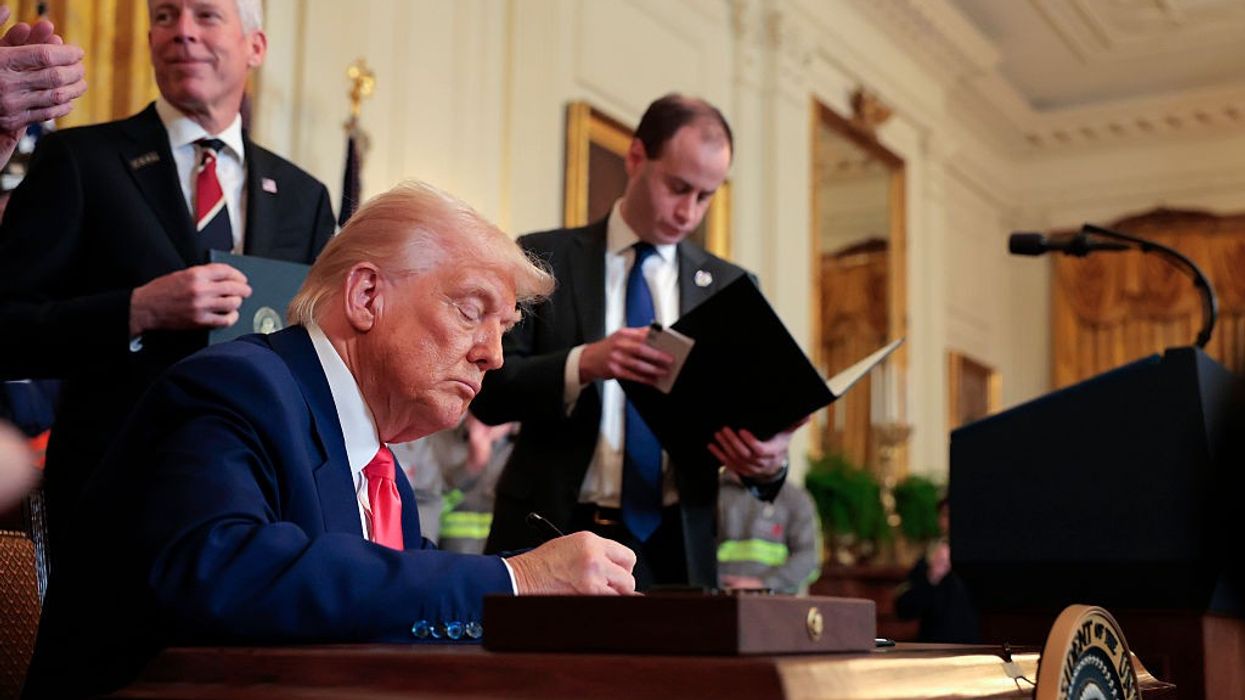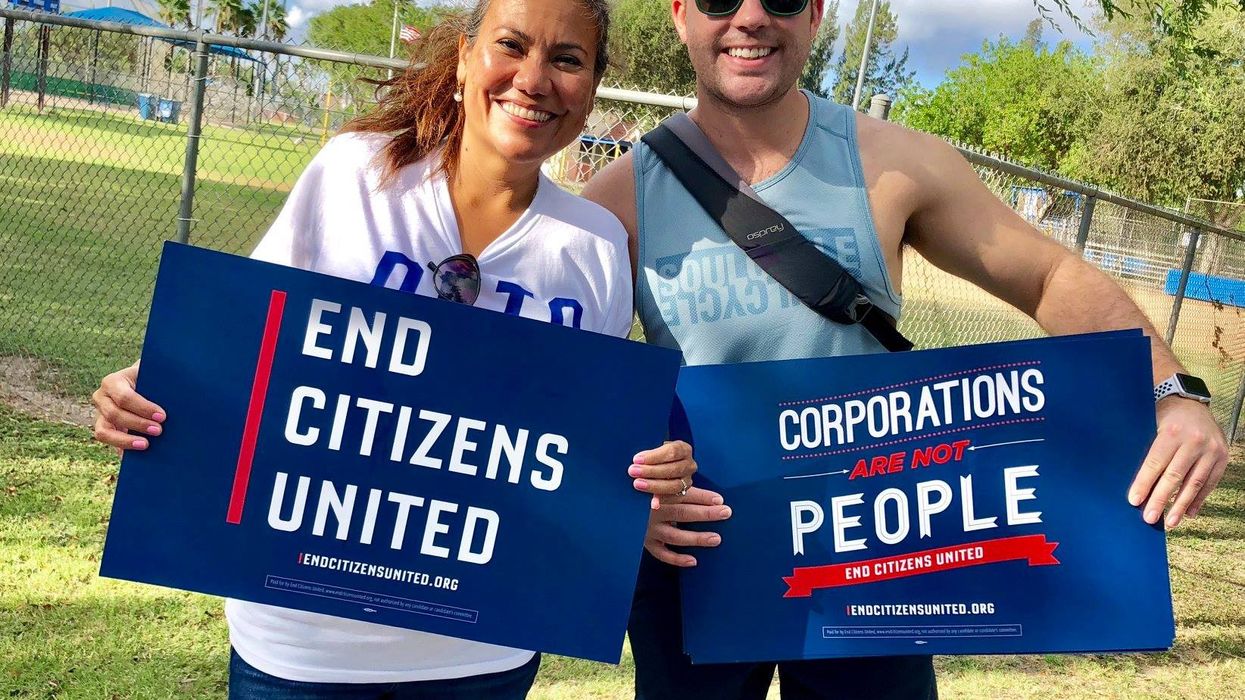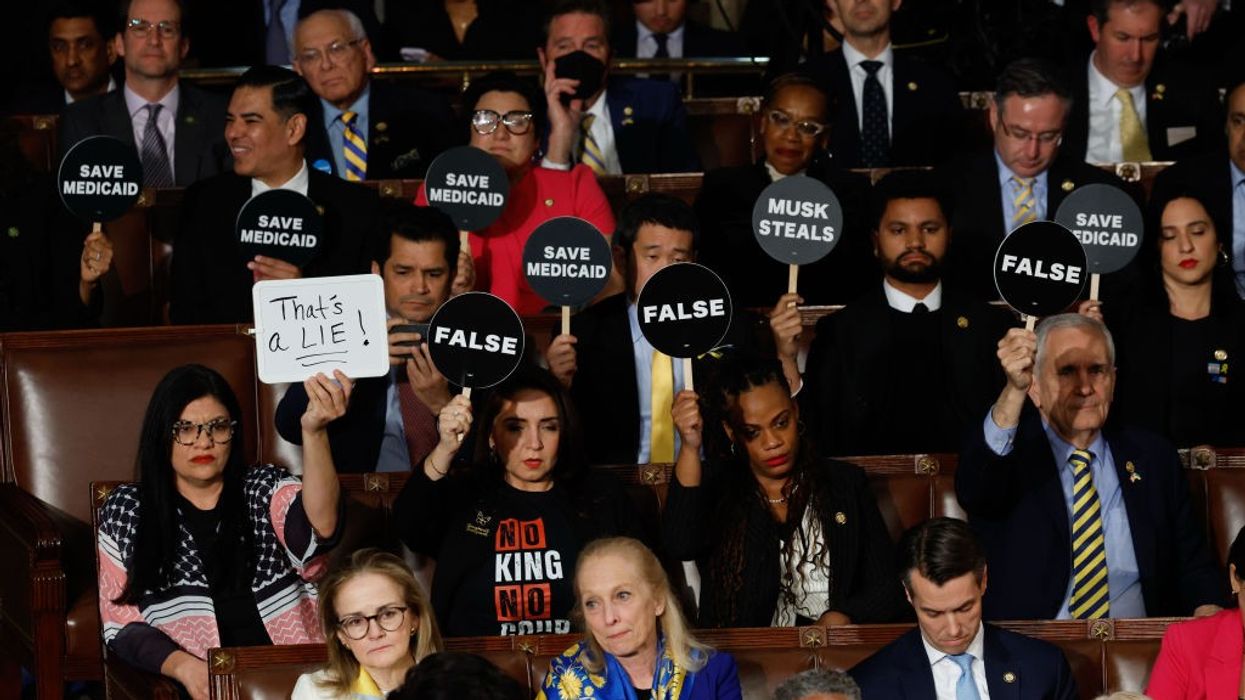Trump's 'Phony Energy Emergency' Used by DOJ to Target State Climate Laws
"There is no energy emergency, and Trump's stated reasoning for it is as much a scam as every other pathetic con and hustle this president attempts," said one consumer campaigner.
Defenders of climate and the rule of law blasted the Trump administration on Friday for using what one consumer campaigner called a "phony" emergency to wage lawfare against states trying to hold Big Oil financially accountable for the planetary crisis.
On Thursday, the U.S. Department of Justice (DOJ) filed complaints against New York and Vermont over their climate superfund laws, which empower states to seek financial compensation from fossil fuel companies to help cover the costs of climate mitigation. The burning of fossil fuels is the main driver of human-caused global heating.
Separately, the DOJ also sued Hawaii and Michigan "to prevent each state from suing fossil fuel companies in state court to seek damages for alleged climate change harms."
"The use of the United States Department of Justice to fight on behalf of the fossil fuel industry is deeply disturbing."
Hours later, Hawaii became the 10th state to sue Big Oil for lying about the climate damage caused by fossil fuels. The Aloha State's lawsuit targets ExxonMobil, Chevron, Shell, BP, and other corporations for their "decadeslong campaign of deception to discredit the scientific consensus on climate change" and sow public doubt about the existence and main cause of the crisis.
"The federal lawsuit filed by the Justice Department attempts to block Hawaii from holding the fossil fuel industry responsible for deceptive conduct that caused climate change damage," Hawaii Attorney General Anne E. Lopez said. "The use of the United States Department of Justice to fight on behalf of the fossil fuel industry is deeply disturbing and is a direct attack on Hawaii's rights as a sovereign state."
The DOJ on Thursday cited President Donald Trump's April 8 executive order, " Protecting American Energy From State Overreach," which affirms the president's commitment "to unleashing American energy, especially through the removal of all illegitimate impediments to the identification, development, siting, production, investment in, or use of domestic energy resources—particularly oil, natural gas, coal, hydropower, geothermal, biofuel, critical mineral, and nuclear energy resources."
Trump also signed a day-one edict declaring a "national energy emergency" in service of his campaign pledge to "drill, baby, drill" for climate-heating fossil fuels. The "emergency" has been invoked to fast-track fossil fuel permits, including for extraction projects on public lands.
Acting Assistant Attorney General Adam Gustafson of the DOJ's Environment and Natural Resources Division said in a statement Thursday, "When states seek to regulate energy beyond their constitutional or statutory authority, they harm the country's ability to produce energy and they aid our adversaries."
"The department's filings seek to protect Americans from unlawful state overreach that would threaten energy independence critical to the well-being and security of all Americans," Gustafson added.
Robert Weissman, co-president of the consumer advocacy watchdog Public Citizen, on Friday accused the Trump administration of "using a phony energy emergency declaration to illegally attack state climate and clean energy laws."
"There is no energy emergency, and Trump's stated reasoning for it is as much a scam as every other pathetic con and hustle this president attempts," Weissman continued. "Fake constitutional claims based on a fake emergency cannot and will not displace sensible and long overdue state efforts to hold dirty energy corporations accountable."
"These corporations have imposed massive costs on society through their deceptive denial of the realities of climate change, and through rushing us toward climate catastrophe," he added. "It's good policy, common sense, and completely within state authority, for states to hold these corporations accountable."


